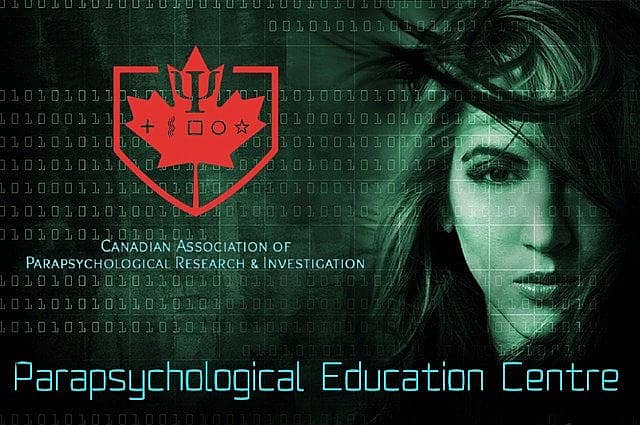Introduction to Parapsychology
Future Students | Current Students | Academics | Academic Calendar | Admissions | Courses | Faculty of Parapsychological Studies

PARAPSYCH100 – Introduction to Parapsychology
Instructors:
Course Description:
Students are introduced to the scientific study of the social science discipline of parapsychology. Students will be introduced to topics that are studied by professional parapsychologists. Topics will include an overview of extrasensory perception (Telepathy, Clairvoyance, Precognition), mind-matter interaction (Psychokinesis) and survival of bodily death (Near-Death Experiences, Out of Body Experiences, Apparitions), history, research methodologies and resources in the field of scientific parapsychology.
Course Outline: (Updated September 11, 2023)
Week 1: Foundations of Parapsychology
- Introduction to Parapsychology
- Key Terms and Definitions
- The History of Parapsychology: From Spiritualism to Modern Parapsychology
- The Scientific Method and Ethical Considerations in Investigations and Research
- Types of Parapsychological Experiments
Week 2: Extrasensory Perception (ESP)
- Telepathy
- Clairvoyance
- Precognition
- Retrocognition
- General ESP
- Mediumship
- Remote Viewing
- Key Studies and Conclusions
- Criticisms and Counterarguments
Week 3: Telepathy and Clairvoyance
- Telepathy
- Clairvoyance
- Telepathy Case Study
- Clairvoyance Case Study
- Key Studies and Conclusions
- Criticisms and Counterarguments
Week 4: Precognition and Retrocognition
- Precognition
- Retrocognition
- Precognition Case Study
- Retrocognition Case Study
- Key Studies and Conclusions
- Types of Parapsychological Experiments
- Criticisms and Counterarguments
- Mid-Term Examination
Week 5: Mind-Matter Interaction (Psychokinesis), and Remote Viewing
- Micro-Psychokinesis
- Macro-Psychokinesis
- Other Types of Psychokinesis
- Recurrent Spontaneous Psychokinesis (RSPK)
- The “Poltergeist” Phenomenon: A Case Study
- Remote Viewing
- Remote Viewing Case Study
- Key Studies and Conclusions
- Criticisms and Counterarguments
Week 6: Survival of Consciousness
- Survival Theories
- Near-Death Experiences
- Out-of-Body Experiences
- Mediumship and Channeling
- Key Studies and Conclusions
- Criticisms and Counterarguments
Week 7: Research and Investigations
- Experimental Research
- Field Research
- Investigative Techniques
- Case Study: Walkthrough of a Real Investigation
- Revisiting Ethical Considerations
Week 8: Future Direction of Parapsychology and Conclusions
- Current Debates and Controversies in Parapsychology
- Importance of Parapsychological Research in the Modern Era
- Paranormal Phenomena Research & Investigation
- Ghost Project Canada
- Final Examination
- Course Wrap-up and Feedback Session
Grading:
- Discussion Questions: 40%
- Mid-term Examination: 30%
- Final Examination: 30%
- Grading Scale: A+ (90-100), A (80-84), A- (85-89), B+ (77-79), B (73-76), B- (70-72), C+ (65-69), C (60-64), C- (55-59), D (50-54), F (0-49)
Recommended Reading:
- “An Introduction to Parapsychology” by Harvey J. Irwin and Caroline A. Watt
- “Parapsychology: A Handbook for the 21st Century” edited by Etzel Cardeña, John Palmer, and David Marcusson-Clavertz
- “Parapsychology: The Controversial Science” by Richard S. Broughton
Technical Requirements:
- Stable internet connection
- Access to Zoom for live lectures (recordings available)
- Moodle for course materials and assignments
Tuition:
Payable through PayPal’s secure online payment system.
Supports CAPRI’s non-profit mission.
Withdrawals and Terminations:
Refer to CAPRI’s policies on voluntary withdrawals, terminations, and appeals.
Admissions:
Complete the CAPRI student enrolment admissions form.
Student Records:
Securely retained at CAPRI’s headquarters.